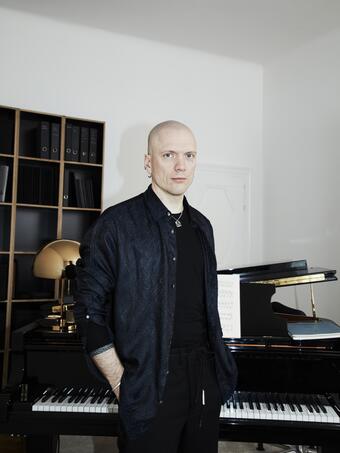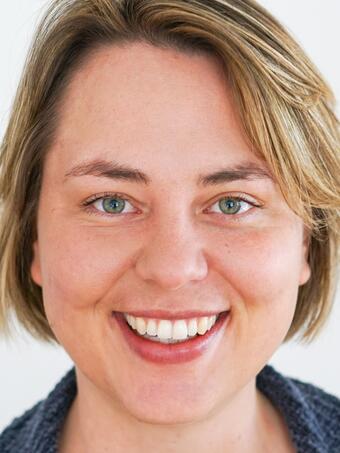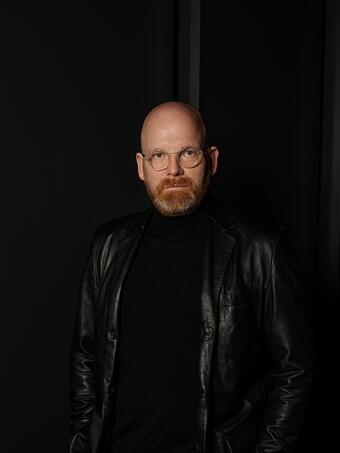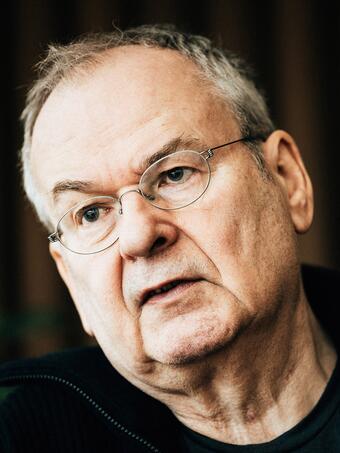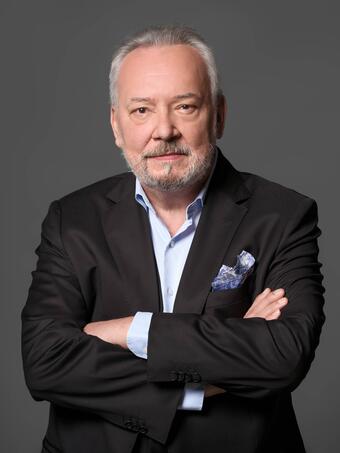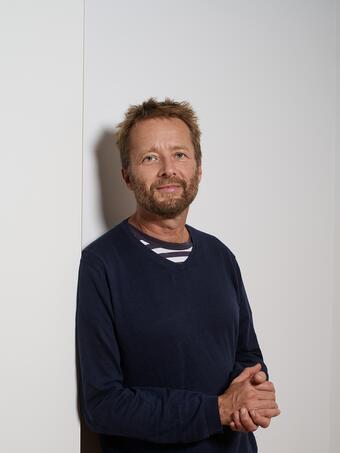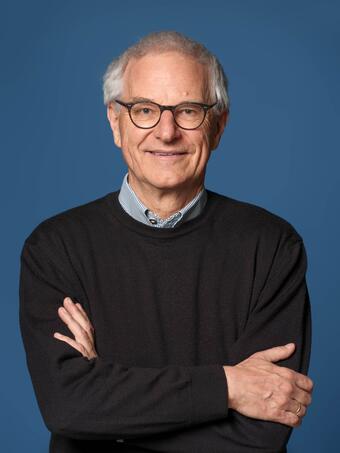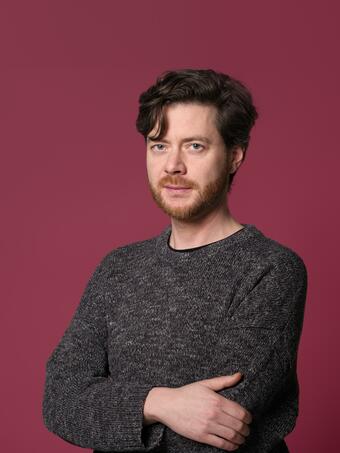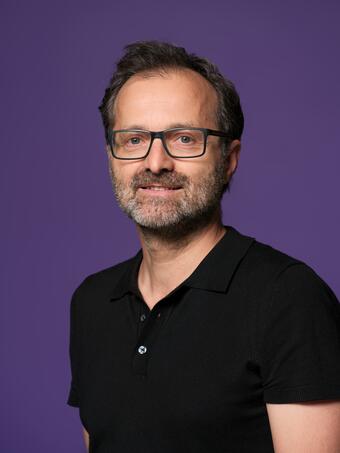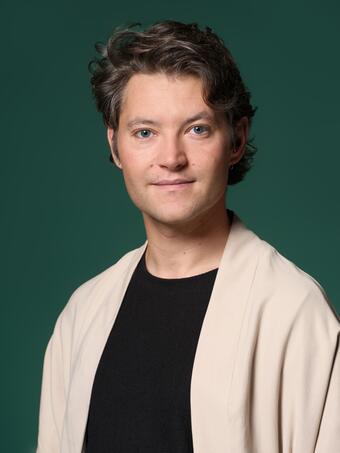Composition
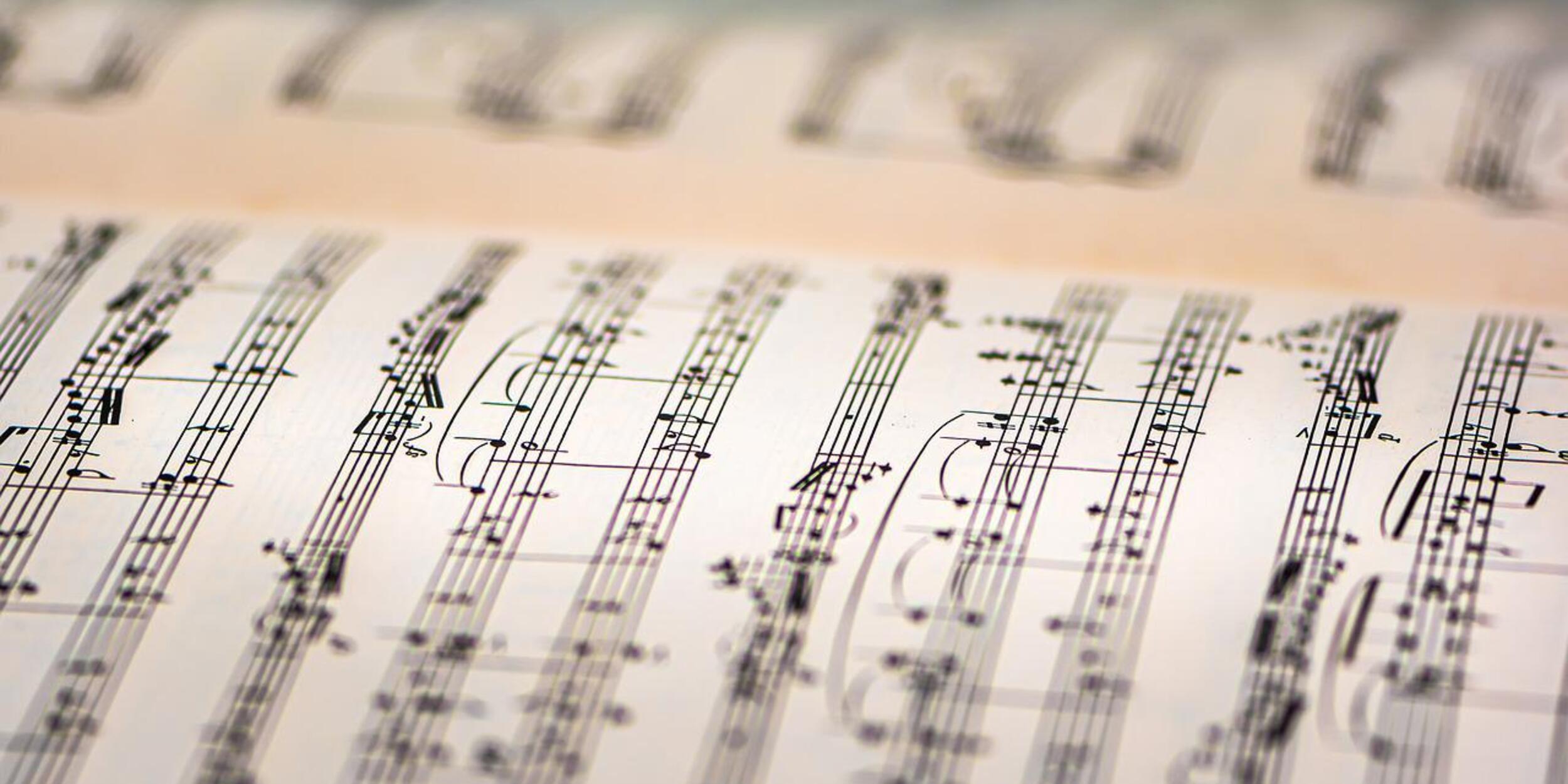
Overview
The bachelor's programme in composition offers comprehensive training in aural skills, work analysis, music history and harmony, as well as in score realisation on the piano, improvisation and conducting. Students gain competencies in all areas of contemporary music (solo repertoire, chamber music, vocal solo and ensemble music, choral music, orchestral instrumentation) and an understanding of stylistic and aesthetic diversity within these areas.
Department of Studies & Examinations
+43 676 88122 492
studienabteilung@moz.ac.at
Length of course
8 semesters / 240 ECTS-AP
Language
German
Application period
1.2.–28.2.2026
Auditions
summer semester each year
dates see at "Audition dates"
overview of all dates
Downloads
General information
The study programme is oriented towards the current state of development in the arts as well as the state of research in the academic disciplines involved. The goal of the artistic studies is the practice-oriented and academically grounded preparation for a career in the following fields:
- Composer
- Teaching composition
- Arrangement and applied composition, stage music and performance
- Supervision of performers of contemporary music
- Conducting
- Performing musician
- Sound and recording studio, music production
The degree programme also serves to qualify students for professional activities in all institutions relevant to music: festivals, radio stations and television channels, the recording industry, artists' agencies, music management, publishing houses, trade journals, etc., in which the application of artistic and scholarly knowledge and methods is required. In addition, the degree programme contributes to students' personal development and the furthering of their social skills. Students will learn to perceive and help shape developments in the arts and in society as a whole.
Guest lecturers include Helmut Lachenmann, Steve Reich, Manfred Trojan, Marc André, Agata Zubel, Michael Maierhof, Mauro Lanza, Jean-Luc Hervé, Yann Robin, Curtis Roads, Barry Truax and many more.
The aim of the study programme is enable students to reach the peak of their creative or reflective abilities and to ensure a confident handling of musical material in all genres (instrumental, vocal and electronic music). The composition programme at the Mozarteum University is characterised by the fact that, in addition to the elective options required within the framework of the curriculum, students can choose electives to build an individual focus as part of their studies.
Obvious specialisations for the study of composition include Electronic Music and Audiovisual Media, Musicology, Early Music, New Music, Conducting, Jazz and Popular Music and Applied Composition. Students can choose from the courses offered by various institutes of the Mozarteum University and the Paris Lodron University Salzburg.
The curriculum is competence-oriented. Suitable candidates for the course will demonstrate:
- Above-average levels of creativity, general and musical intelligence, and communicative, social and linguistic competence.
- Ability and willingness to reflect on as well as to engage in dialogue about one's own artistic works and views.
Upon completion of the programme, students should:
- be technically and aesthetically proficient in the creation of a wide variety of works of contemporary composition
- be free and independent in their artistic work
- be able to critically engage with artistic and scholarly issues
- have acquired comprehensive knowledge of music theory and musicology and be able to apply it in practice
- have mastered the basics of academic working practices and be able to analyse, interpret and write about artistic content in a well-founded manner
- be able to use new media effectively
- have developed their individual interests beyond their own subject area through targeted in-depth study within the framework of elective subjects, in the spirit of lifelong learning
The eight-semester bachelor's degree programme is modular in structure. Each module comprises teaching and learning content that has been combined to form thematically and didactically meaningful units of study. The names and content descriptions (study objectives) of the individual modules, the number of ECTS credits to be achieved for each module, and the type of performance assessment are specified in the curriculum. The module descriptions refer to the corresponding learning outcomes and competencies. The Bachelor's programme is a face-to-face programme and cannot be offered - not even in part - as a distance learning programme. The courses from the Principal Study, as well as in other One-to-One Tuition, are designed to build upon each other. Prerequisite for enrolment in courses from the Principal Study or One-to-One Tutition is a positive evaluation of the previous semester (from the second semester onwards).
The curriculum provides an overview of the courses to be completed, which are grouped into modules.
The courses are visible online in Curriculum Support:
A prerequisite for beginning a bachelor's degree (BA) is passing an audition. Auditions take place once a year and consist of various partial exams. All information about the audition can be found under “Information about the admissions procedure” further down the page.
A high school diploma is not necessary.
PLEASE NOTE: You can only apply for study programmes for which you have not yet obtained a degree!
Students of the Bachelor's programme are encouraged to complete a semester abroad. Semesters 5 and 6 of the degree programme are particularly suitable for this. In addition to subject-specific competences, a study period abroad can also lead to the acquisition and deepening of:
- Subject-specific foreign language skills
- General foreign-language skills (language comprehension, conversation, etc.)
- Organisational skills, through independent planning of everyday student life in international administrative and university structures
- Knowledge about international study systems, as well as broadening one's own subject perspective
- Intercultural competences
Examinations and assessments taken during studies abroad can be approved by the Director of Studies as equivalents to compulsory subjects, elective sujects or free elective subjects required by the Mozarteum University for your degree course. The documents required for the approval procedure are to be submitted by the applicant immediately after their exchange semester.
Details at International Affairs.
In addition to individual lessons in composition, a central content of the programme is practical work with renowned ensembles such as the oenm . österreichisches ensembles für neue musik, Kairos Quartett, Ensemble Recherche, Ensemble Phorminx, Ensemble Integrales, Ensemble Handwerk, Ensemble Mosaik, among others, who are invited to the Mozarteum University for a work phase followed by a concert. In addition, students are offered a variety of individual cooperation opportunities with other areas of the university, such as the Thomas Bernhard Institute or the Departments of Scenography, Opera and Fine Arts & Design.
The Studio for Electronic Music offers composition students exclusive opportunities to work in the field of electronic, electroacoustic and computer-assisted composition. A wide variety of multi-channel productions can be realised in the three studios (two digital and one analogue).
Composition teaching at the Mozarteum University is networked in many ways with the cultural infrastructure of the city of Salzburg. There are cooperations with various venues, and the Mozarteum is also closely connected with the city's renowned contemporary music festivals. Works by Mozarteum composition students are regularly performed at the Aspekte Festival, the stART Festival and the Pocket Opera Festival.
The Institute for New Music organises all activities in the field of New Music that are relevant to the study programme and even goes beyond this, from the supervision of individual students to cooperations between several classes, departments and other internal and external institutions. Special importance is attached to the cooperation between the instrumental and composition classes. The Institute for New Music thus offers students and teachers the opportunity to experience the entire spectrum of contemporary music in a cross-curricular way:
- The Ensemble for New Music of the Mozarteum University works with students on the programmes of the "Doppler" concert series.
- Renowned interpreters of New Music enrich the concert programme at the Mozarteum University with exclusive programmes.
- Selected composers from Austria and abroad complement the educational programme with presentations and seminars.
In addition, the institute organises the annual Crossroads Festival. Young composition students from all over Europe can apply for one of up to 15 world premieres, which are performed by various international ensembles of new music during the festival staged at the Mozarteum.
Information on the admissions process
The prerequisite for starting a bachelor's degree (BA) is passing the entrance examination, registration for which takes place online. In the application form, an application portfolio (see exam A) must be submitted as a PDF file.
The examination panel will make a selection based on the application portfolios submitted. The selected applicants will be invited to take part in exam A (online interview) and, upon passing the interview, will be invited to the on-site entrance examination. This consists of several parts.
PLEASE NOTE:
- Evaluation of the portfolios will be carried out after the application deadline and can take 2-4 weeks!
- Candidates can only apply for study programmes for which they have not yet obtained a degree!
Please take a look at the FAQs about registration in Muvac if you have any problems.
The steps necessary for registration are detailed below. Applicants who have already studied at an Austrian university should start with step 3.
2. Once in the MOZonline account: fill in the mandatory statistics UHstat1 (pre-registration for studies) and make a note of the application number that is sent by email upon submission of this information.
3. Create an application account in Muvac
4. Fill out your own profile in Muvac (minimum requirements: personal data, information on expertise matching the desired degree programme, in the CV: current employment and information on previous training)
6. Fill out the application form in Muvac ("Apply now"), being sure to enter your application number (see step 2) or Austrian matriculation number in the appropriate field
Please note: Your application is only valid once you click "Submit application" in Muvac and subsequently receive a green confirmation message from Muvac. Creating a basic account in MOZonline (step 1) or creating a profile in Muvac (step 4) does not constitute a valid application!
After successful submission, you will receive an email from Muvac confirming receipt of your application. You can also check the status of your application yourself after logging into Muvac under Menu -> Applications.
- online registration during the application period via the application portal Muvac (Please note: Registration is only possible if all information is complete!)
- after processing your online application: intivation to partial exam A (portfolio & online interview, invitation sent via Muvac)
- after positive portfolio assessment and online interview: invitation to the on-site audition (the invitation is sent via Muvac)
- in Muvac: acceptance or rejection of participation in the admission exam; if necessary: information on the examination programme for the audition in the main subject (ZKF)
- participation in the on-site audition
- upon passing the audition and obtaining a place: invitation to enrolment to the degree programme
- personal enrolment during the general admission period
The oral examination in the principal study Composition, lasting approx. 20 minutes, takes place via ZOOM and consists of two parts (portfolio and interview).
For the oral examination, candidates will present their own works created prior to their studies (e.g. solo, chamber music, ensemble, orchestra, electroacoustic or media works in the form of sketches, scores, recordings, films, etc.) and discuss their content and aesthetics with the examination board. Candidates must include links to their works in the portfolio; the portfolio will be submitted as a single PDF file containing all works). If necessary, a discussion can take place on motivation, background, previous studies, expectations or professional perspectives.
The portfolio must be uploaded in the application form in Muvac. It needs to be one single PDF document.
Candidates are requested to ensure that they are available with a stable internet connection at the specified time of the online interview (probably mid-April); a PC/laptop with camera/microphone is also necessary.
After passing Partial Examination A, you will be admitted to Partial Examinations B-D.
The examination consists of a written and an oral part. In order to pass, both parts of the examination must be passed.
Written examination (180 min)
Composition: (120 min)
- Harmonising a chorale melody in baroque style;
- Preparation of a stylistic work of your choice: two-part counterpoint (cantus-firmus movement in Renaissance style or invention in Baroque style) OR free-tonal or dodecaphonic style exercise;
- Analysis of your choice: analysis of a short tonal piano piece in terms of form, harmony, compositional technique OR analysis of a small-scale work/piano piece in terms of form, harmony, compositional technique (20th century).
Aural skills: (60 min)
- one-part free tonal,
- two-part classical (e.g. minuet by Mozart or Haydn),
- free-tonal three-part tonal progression with recumbent notes or chromaticism,
- four-part homophonic tonal including the identification of deliberate mistakes
Oral examination (10 min):
- Sight reading
- Identifying deliberate mistakes in a harmony
- tapping a two-part rhythm (according to notation)
Exam preparation:
- Sample questions for the written entrance exam for BA Composition, BA Choral Conducting and BA Orchestral Conducting
- Glossar: Deutsche musikalische Grundbegriffe für Musiktheorie und Komposition (Basic German musical terms for music theory and composition)
- further preparation aids (only the basics!)
Advanced piano playing, audition lasting approx. 10 minutes:
- Performance of two prepared piano pieces of medium difficulty, one of them from the 20th century, e.g.:
Bach: two or three-part invention;
a piano piece in the classical style (e.g. a bagatelle by Beethoven, a sonata movement by Clementi),
Bartók: Mikrokosmos Vol. III, Kurtág: Játékok Vol. III. - Sight-reading of a piece (lower level of difficulty, e.g. Bach: Klavierbüchlein Anna Magdalena Bach, Schumann: Album für die Jugend, Bartók Mikrokosmos Vol. II) OR improvisation on a given theme/motif
All applicants whose first language is not German must prove their German skills by the time of enrolment at the latest.
- Required language level: at least A2 (Common European Framework of Reference for Languages GER 2001)
- Information on the approved language certificates can be found HERE
Please begin your preparation well in advance and be prepared for the possibility that you may not pass individual parts of the exam on your first attempt! Enrolment is only possible with a complete pass rate for the exam (speaking, writing, reading, listening)! It would be a pity if you were unable to begin your studies due to missing or incomplete proof of German language proficiency.
Exam A - Portfolio examination & online interview to determine artistic aptitude 9.4.-10.4.2025 (online via Zoom)
Exam B - Music theory & Aural skills: 15.5.2025
Exam C - Advanced piano: 15.5.2025
Exam D - German language skills: certificate (to be presented upon enrolment)
Please note that the Mozarteum University Salzburg offers various support options at the time of your audition and during your studies if you have a disability or a chronic illness.
If this applies to you and you would like to take advantage of counselling, please contact Claudia Haitzmann: claudia.haitzmann@moz.ac.at or +43 676 88122 337.
Any questions?
You can find more information about starting your studies here:
